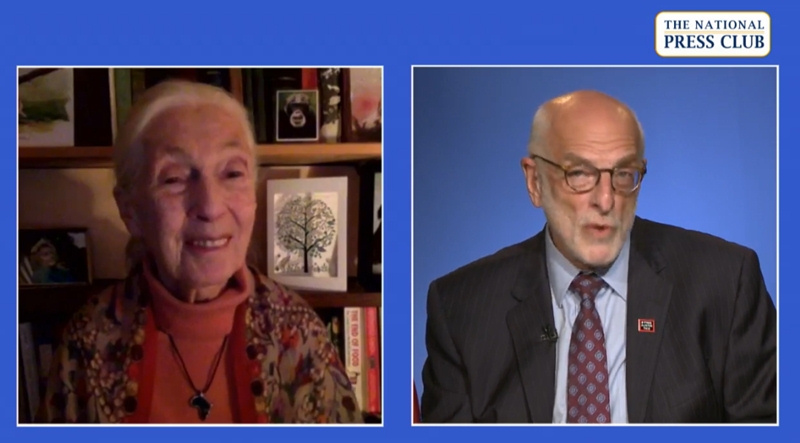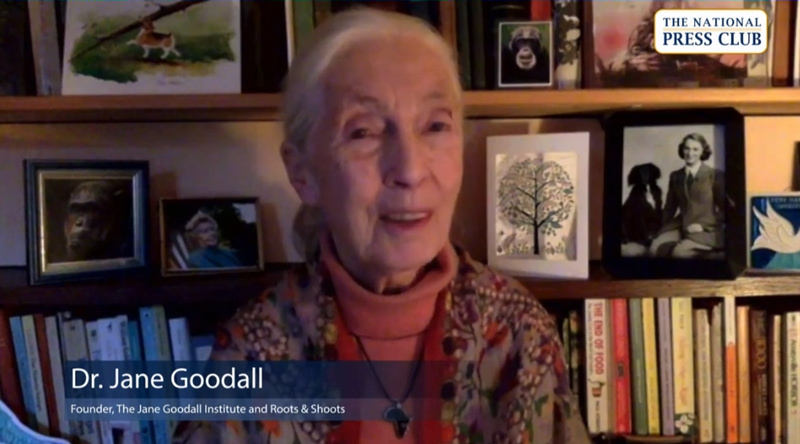Jane Goodall wants everyone to make choices to protect Earth

Jane Goodall, whose renowned study of chimpanzee behavior began six decades ago, developed her respect for animals even earlier. It was her relationship as a teen with a neighbor's mixed-breed dog, Rusty, that convinced her animals have personalities, minds and emotions.
A photo of Rusty was prominent on a shelf behind her as Goodall, 86, chatted Friday with National Press Club President Michael Freedman from her home in the United Kingdom for a virtual Headliners conversation.
Her work with chimps "changed how humans view the natural world," Freedman said.
Goodall is still at that task, working to convince people that everyone has a role in fighting climate change.
"We'll never get back to the world as it was ... not in our lifetimes. But we can slow down climate change," she said. "It's so important to protect the existing rain forests, and forests and woodlands and peatlands and wetlands and mangroves, because they're absorbing the carbon dioxide. And all the time, there are new, amazing technologies -- scientific minds working to fight this thing.
"So while these scientists are working away at what they're doing, we need to be protecting the forest as a sort of short-term 'hang in there' to absorb the carbon dioxide."

Goodall, a vegetarian, added, "If we would just stop eating all this meat, the difference would be huge, because all these billions of farm animals -- billions -- are kept in concentration camps to feed us." She outlined her complaint: The industry consumes feed grain that takes up land, water that's in short supply and fossil fuels to transport the meat. And the animals' digestion produces methane, a greenhouse gas.
Is it too late to save the planet? a viewer asked.
"While there's, I believe, a window of hope, the important thing is for us all to get together and do our bit," Goodall said. "Think about the choices we make each day in what we buy, in what we eat. If everybody ate less meat, or preferably no meat, it would not only reduce cruelty but it would also have a huge impact, positive impact, on the environment. ... Different people can do different things. Some people can plant trees. Some people can put money into programs that do plant trees."
Goodall had "a bone I have to pick with journalists." "Bad news sells" while the resilience of nature and the environmental work people are doing gets little attention, she said. "If only the media would put bit more effort into the good side, there'd be a little bit more hope in people."
She made a pitch for donations to the Jane Goodall Legacy Foundation, which has programs around the world. "I'm really passionate that when I'm gone, and I'm nearly 87 ... I don't want everything I've fought for all my life to vanish because I'm not there ... I want them to go on. Why? Because they're working."
Asked what everyone can do, Goodall said, "Just the little choices, remembering that every day we live, we make some kind of impact. And please let's choose to make an ethical impact, to make the world a better place."
